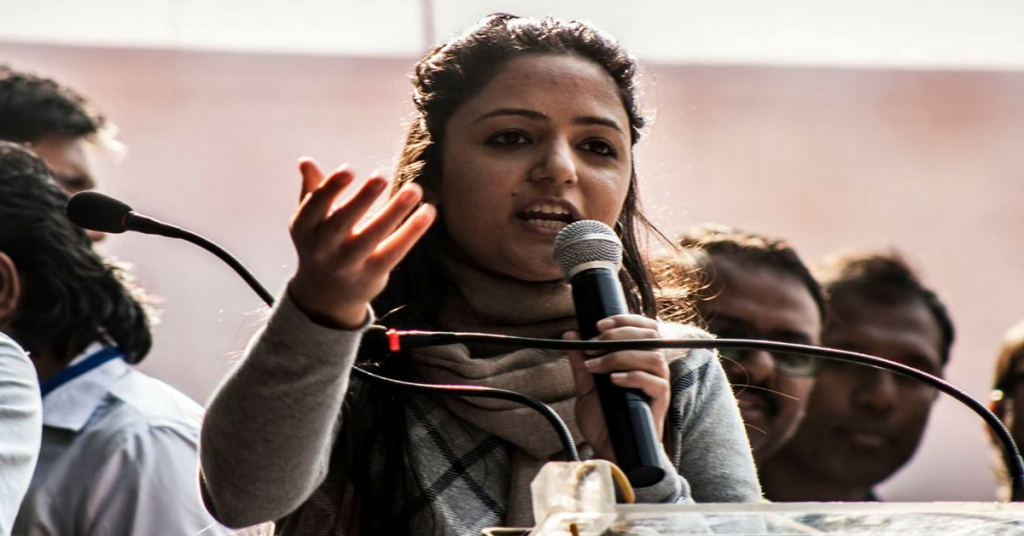Shehla Rashid was dragged into a raging maelstrom of hate and misogyny nearly two years ago when she emerged at the forefront of India’s burgeoning student movement. She earned the wrath of right wing groups and was anointed with a variety of undignified labels like ‘anti-national’ and ‘traitor’. However, none of this deterred the firebrand student leader. Infact, even more determined to stand up for student rights in India, Shehla gave up her original plans to pursue a degree abroad and decided to continue further education in India itself. However, things took an ugly turn when Agent Rana, a serialised graphic novel published by the Times of India, not only allegedly based a character named Sameera on Shehla, but also showed Sameera accepting bribes from Pakistanis, getting raped and murdered.
“I wasn’t even aware of Agent Rana, because I don’t subscribe to the newspaper that publishes it,” says Shehla about the latest controversy surrounding her. “When the first few panels showing Sameera appeared people were quick to notice the similarities and some friends brought it to my attention. I laughed off the first four,” she says. “It lacked originality, imagination and creativity,” she says. But things changed on January 23, 2018, when Sameera was raped and murdered. “It did disturb me though, when I saw the latest panel. There was something about the broken neck, the noose around her neck and that she had been sexually assaulted before being murdered,” she shares.
Shehla was alone at home when she saw the images on Twitter and felt deeply upset at what the story line was insinuating… that Shehla ought to be punished for the stand she has taken as one of India’s strongest voices of dissent… that she should be raped and murdered for being a so called ‘anti-national’. “I did not want to be alone and felt depressed. So I called a friend and we went out for a bite. Infact, I have since then always been in the company of friends who have been very supportive. I have also received words of encouragement on social media,” she says. However, her family still does not know about this episode.
Shehla who has over 2,50,000 followers on Twitter is learning to cope with the latest low blow. “I have thick skin. Guess it has to get thicker,” she says her characteristic calm gradually returning to her voice just hours after closing the Agent Rana chapter. As a woman, a Muslim and a Kashmiri, the nature of hate directed towards Shehla, especially on social media has always had many layers and has been particularly vicious. But never in her wildest dreams did she expect a mainline national newspaper to publish such content. But she has chosen to shrug it off and walk away. “I don’t want to lend this episode any dignity by dwelling on it anymore,” she says.
Shehla has bigger fish to fry. “You have to view all these attacks against me and other student and youth leaders in the right context. We have raised questions that the government does not want to answer. They have failed on several fronts including demonetisation, GST, unemployment, land reforms… their stooges are employed to target us to divert attention from these issues,” she says.
“The resistance is not mainstream today. I feel that our words are often lost in echo chambers,” says Shehla. The solution, according to her, is twofold and involves the Indian news media. “First, while it is perfectly all right for journalists to have an opinion, they should not use their studios and resources to demonise dissenters. Instead they should focus on holding the government accountable,” she says alluding to her now famous spats with certain media houses. “Secondly, influential people and businesses need to take a stand. Stop appearing in or advertising in publications that peddle the politics of hate and discrimination. Demand actual change than being mere keyboard warriors,” she says giving a clarion call to people of India to unite against divisive politicians and their henchmen.
*** Feature Image courtesy Shafaq Khan

